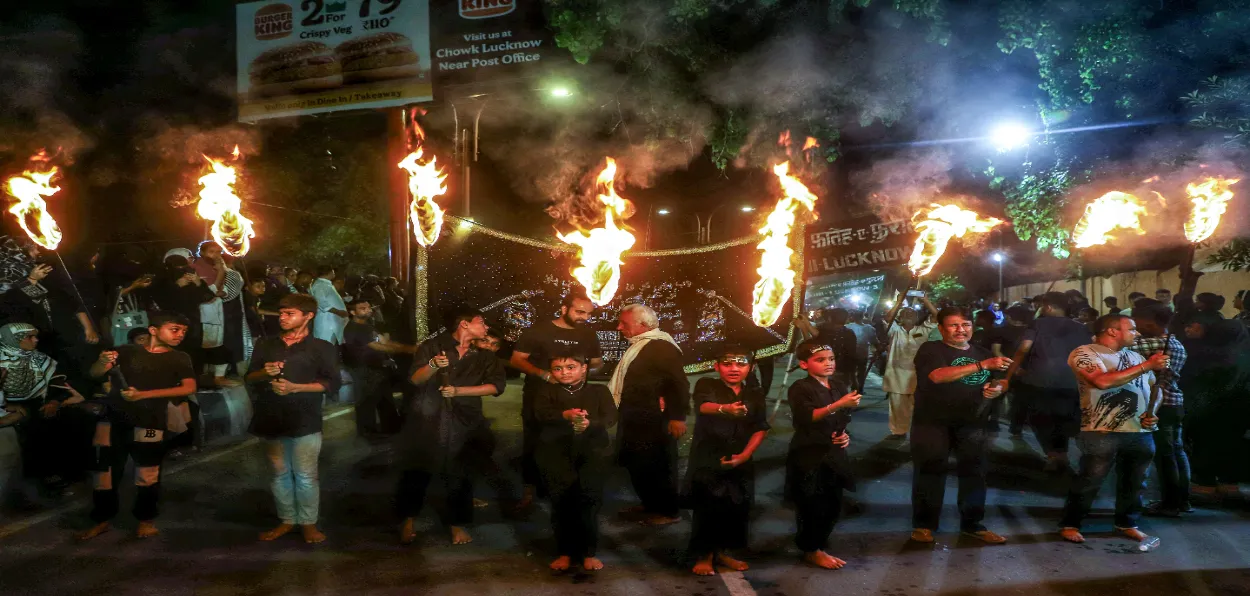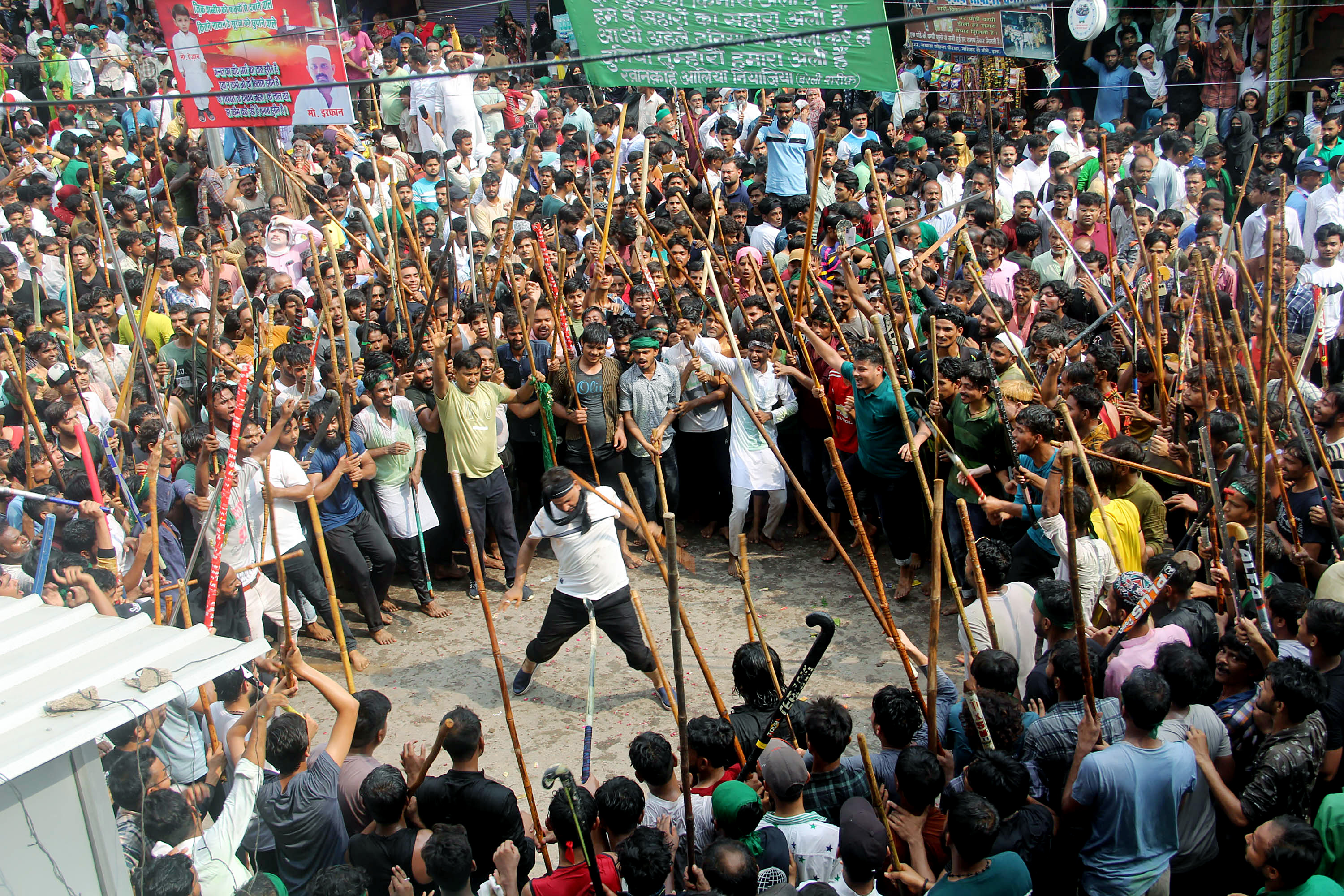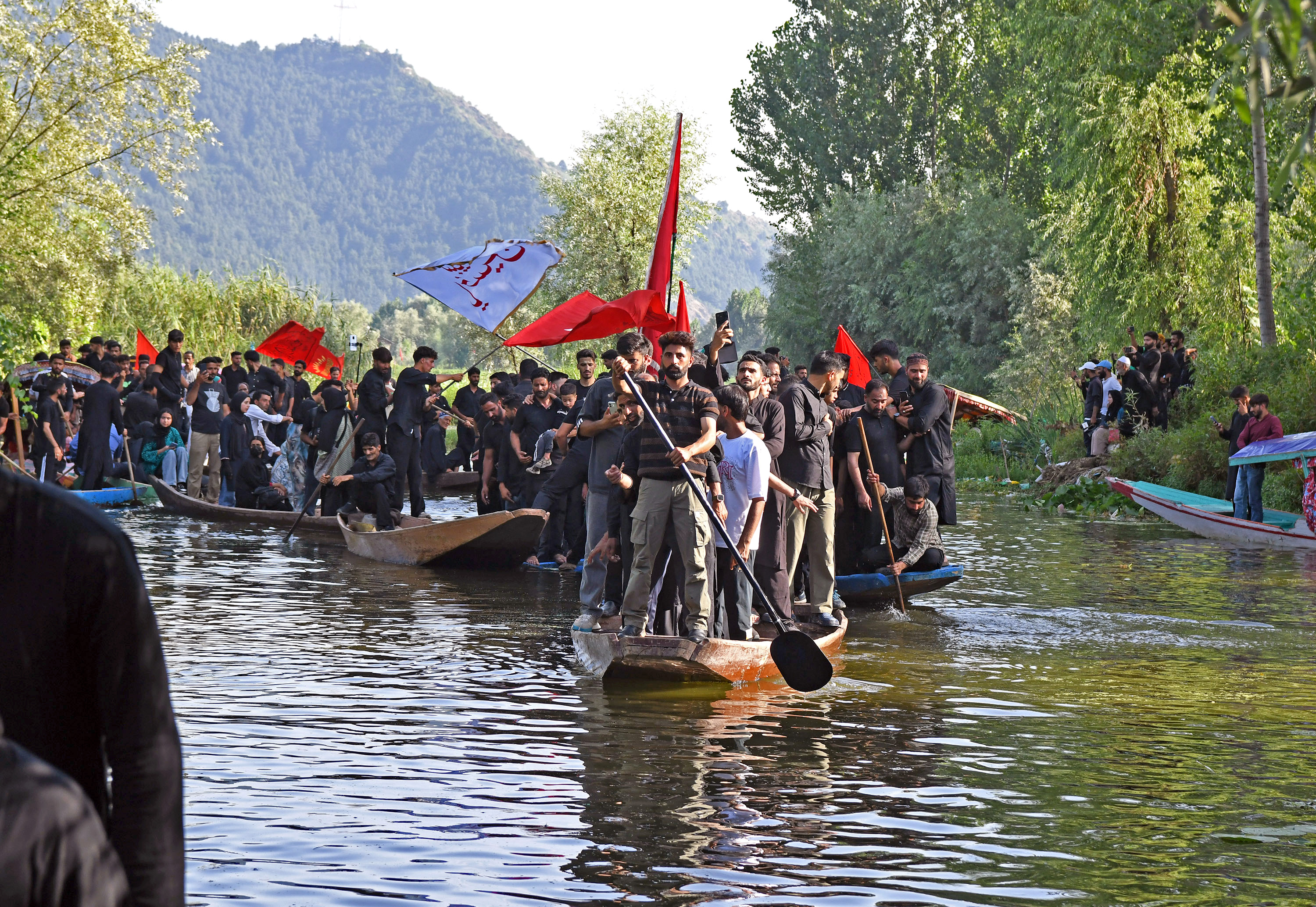
Ghulam Rasool Dehlvi
For mankind, Muharram is a Marsiya - an elegy on the martyrdom of Imam Hussein Ibn Ali, grandson of Prophet Muhammad. Not just Muslims but the whole humanity cries over the tragedy of Karbala. However, more than just a marsiya and matam (mourning or commemoration), Muharram epitomizes the courage of conviction called ‘Jazba-e-Husseini’ to stand up against religious corruption, political oppression, moral bankruptcy, social injustice, and tyranny.
Over 1300 years ago, on this very day - the 10th of Muharram called Ashura Day - the great tragedy of human history happened in the land of Karbala in Iraq. On this day, several significant events related to the Prophets of Islam, Christianity, and Judaism also occurred.
Of these, the battle of Karbala and the martyrdom of Imam Hussein came as the last of the prophecies. It signified the prayers of Prophet Moses and marked the day when God saved the Children of Israel from the Egyptian Pharaoh. It also fulfilled an incomplete sacrifice of Prophet Abraham’s son, Ishmael. However, the event of Karbala remains an unfulfilled mission of the Imam; repel injustice and replace the evil with the common good.
 Shiite Muslims taking out a procession in memory of Imam Hussain's martyrdom in Lucknow
Shiite Muslims taking out a procession in memory of Imam Hussain's martyrdom in Lucknow
Today wherever we look, we find people, planet, and humanity in deep crisis. Injustices, inequalities, mistrust, division, prejudice, and ‘religious corruption’ are rampant. All this reminds us that the tragedy of Karbala is not yet over. Everywhere in the world, there are some scenes of Karbala. Wherever you step, you will find the land of Karbala. This is precisely why Imam Hussein’s grandson Ja’far as-Sadiq said: "Every day is Ashura and every land is the land of Karbala".
Today we’re living in Akhir-al-Zaman (end times) or Kaliyuga, when human lives are cheaper than animals, and humanity is being trampled upon. Every drop of unjustly shed blood deports our memory and consciousness back to the blood of Hussein. This makes us weep and howl in the pain of humanity’s Karbala not only in every Muharram but in every moment.
While commemorating Muharram and recalling Imam Hussein’s martyrdom, we often forget those who stood by Hussein in his harshest times. Those who exerted concerted efforts to fight for truth and justice, though they did not belong to the religion of Imam.
History witnessed that it was only a handful of Muslims - his 72 family members and supporters - who were out there in Karbala. Yazid’s commanders were hell-bent on getting Imam’s head. Far from the battlefield of Karbala, some brave Indians too left their homes to strive for justice and support Hussein’s family in Iraq. These soldiers - traced historically as ‘Husseini Brahmins’ - traveled to Karbala in 680 AD to write a golden page in the history of Hindu-Muslim unity for justice and righteousness.
 Kashmiri Shiite Muslims taking out a boat procession through Dal Lake in Srinagar on 9th Muhrram
Kashmiri Shiite Muslims taking out a boat procession through Dal Lake in Srinagar on 9th Muhrram
Fast as the wind, carving their way through the sand, this caravan of "Husseini Brahmins", is the epitome of bravery. Their spirit re-enlivened the battle of Karbala. Mainly from the Dutt community and Mohiyals, found in Punjab, they are traced back to some Rajput Mohiyals who stood by Hussein in Karbala. No wonder why Imam Hussein before his death had proposed, “I would live in Madina on my conditions, or I wish to migrate to Hindustan”.
Yazid, high on his power was adamant on forcing him to bow down to his despotism. He knew as long as Imam Hussein was alive, he wouldn’t succeed in his autocracy. Thus, Yazid cornered the Imam and his entire family at Karbala and killed them.
In our world, while unjust killings, ethnic cleansing, genocide, and the bombing of innocent people bring the memory of Yazid back, Hussein lives in the everlasting spirit of the lesser-known but truly unforgettable heroes of human history such as the brave ‘Husseini Brahmins’. They valiantly fought for truth and righteousness in the great saga of Karbala with inspiration emanating from Kurukshetra, a war theatre where Kaurvas and Pandavas fought the war and Sri Krishna guided a reluctant. Some of the Hussaini Brahmins were martyred at Karbala, some stayed back, while a few returned to India. Thus, the deeply agonizing memory of Karbala in Muharram can also be juxtaposed with Mahabharata.
ALSO READ: Imam Hussain wanted to go to India: Maulana Amanat Husain
Right from Kurukshetra to Karbala, the spiritual souls strived for liberation, peace, justice, and righteousness. They were very few. In Karbala, the 'Hussanis' were only 72, while in Kurukshetra, the Kauravas boasted a vast army, led by experienced and competent generals. The Pandavas had only 7 divisions against the 11 divisions of the Kauravas, along with one strategist: Shri Krishna. However, the Kauravas of Kurukshetra and Yazidis of Karbala failed to crush a considerably much smaller army that had invincible souls.
The Qur’an (2: 249) states: But those who knew that they would meet their Lord said, ‘How often a small force has defeated a large army with God’s permission! God is with those who are steadfast.’
The author writes on Islamic and Sufi Affairs
